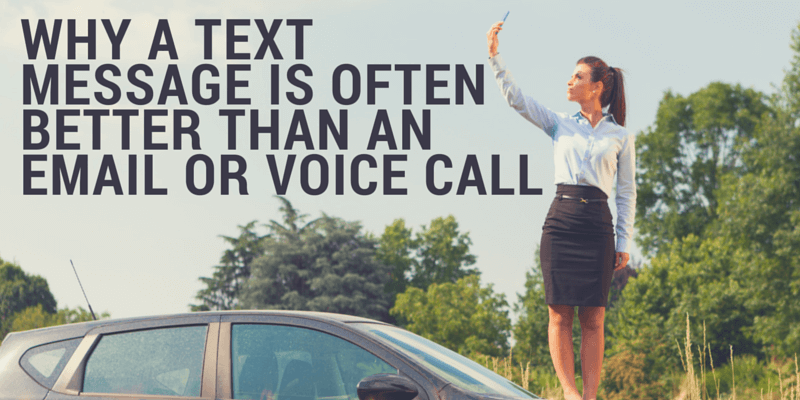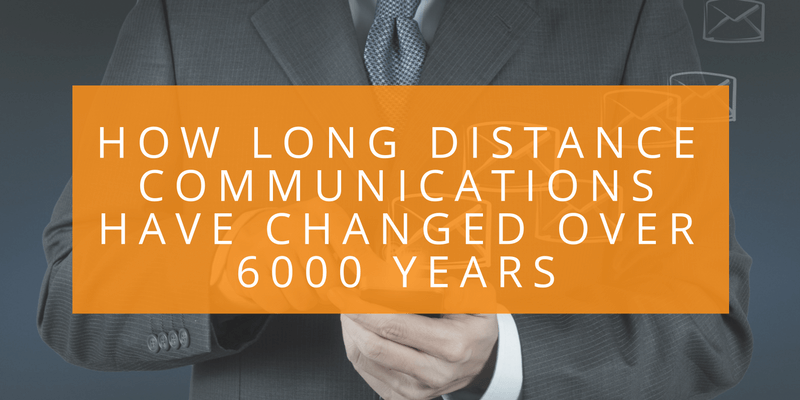A Brief History of the SMS Text Message

For the generation now commonly referred to as the Millennials, SMS messaging has been a part of life from day one and remains one of the most commonly used methods of communication, even with the rapid growth of mobile messaging apps such as Facebook Messenger and WhatsApp to name but a few. The later arrivals, popularly referred to as generation X, have done little to buck the trend, with a typical person sending and receiving an average of three text messages a day. The same is also true of older generations, for whom SMS messaging is perhaps even preferable to modern alternatives. But how and when did it all start? Here’s a brief history.
Early Origins
In order to understand how the humble SMS message came about, we first need to take a trip back in time to the eighties. Yes, that time of decidedly dodgy hairdos, dreadful dress sense and… splendid pop music. The year was 1984 and Wham’s ‘Wake me up before you go go’ was number one in the charts. German engineer Friedhelm Hillebrand and his French colleague Bernard Ghillebaert were hard at work developing a system that would allow written messages to be exchanged through the existing telephone network by making use of unused capacity. The system was based on the the GSM (Global System for Mobile Communications) standards.
Short & Sweet
Early on in their research, Hillebrand and Ghillebaert found that it was necessary to limit the length of messages to 128 bytes in order to fit into the existing signal formats. This was later improved to 160 characters. Hillebrand argued, on the basis of his analysis of postcards and Telex messages, that this was quite sufficient to express most messages succinctly. It was this same principle that much more recently became the basis for the 140 character limit in Twitter.
The First SMS
Although Hillebrand and Ghillebaert laid the foundations for SMS messaging, it is the Finnish mobile communications engineer Matti Makkonen who is generally credited as the inventor of the SMS text message as we know it today. Makkonen was working for Nokia at the time and helped the company to develop the first ‘SMS friendly’ handsets.
Despite the truly multinational story behind the SMS, the first SMS message was sent over the Vodafone GSM network in the United Kingdom on 3 December 1992. It was sent by Neil Papworth of Sema Group (now Mavenir Systems) using a personal computer to Richard Jarvis of Vodafone using an Orbitel 901 handset. The text of the message was “Merry Christmas.”
A Slow Start
Despite its popularity today, SMS messaging got off to a surprisingly slow start. In 1995, the average number of messages sent per customer per month was just 0.4. This was, however, largely due to operators rather than customers. For example, it was not until 1999 that an agreement was reached allowing users to send SMS messages to contacts using other networks!
Once early billing problems had been resolved and restrictions eased, the full usefulness of SMS text messaging was unlocked and numbers quickly rose. By the end of 2000, UK users were sending an average of 35 text messages each per month. In 2010, it was reported that 6.1 trillion messages were sent globally – an equivalent of 193,000 SMS messages per second.
SMS Messaging Today
Even with the challenges posed by alternative messaging technologies such as Facebook Messenger, WhatsApp and others, there is little evidence that SMS usage is facing any decline in the foreseeable future.
While 97% of smartphone users report using instant communication apps at least once a day, evidence suggests it is generally used alongside SMS messaging and not as a replacement, with the number of SMS messages sent per user still maintaining close to the levels reported back in 2010.
Indeed, it is still not uncommon to see people sending an SMS text message to confirm that a message sent via another platform has been seen or to chase a reply.
The Evolution of SMS Marketing
A study into the present and future outlook for SMS marketing published in 2014 reported that the global SMS messaging business was worth over $100 billion, accounting for as much as 50% of all revenue generated by mobile messaging.
Alongside this. it is still claimed that up to 98% of SMS messages are opened within three minutes of receipt. Statistics gathered in 2016 only go further to support the value of the channel, with 82.1% respondents stating they open every single message they receive. Email open rates, in comparison, pale into near insignificance.
Despite the clear potential for unparalleled reach, it is believed that as few as 14% of enterprises have embraced SMS marketing within their wider marketing strategies – even with the vast majority of consumers agreeing that it is generally good for businesses to send SMS messages, both from a sales and a customer relations perspective. Special offers and customer service were cited as being the most welcome uses of SMS marketing.
Perhaps the most encouraging statistic from a marketing perspective is that 91% of customers who opted in for text message marketing see the messages they receive as either somewhat or very useful. The most common reasons for people opting into SMS messaging are:
- coupons or deals (77%)
- personal alerts (50%)
- being in the loop (48%)
- more meaningful content (33%)
- no need to visit a physical location/website/app for information (31%)
If you have yet to use SMS marketing and are struggling to find ideas of how your business might put it to good use, these should open up some interesting avenues to explore. For more ideas specific to your sector, click here to look at some of our case studies.
At FastSMS, we are at the forefront of the UK SMS Marketing industry, offering an award winning service that is cost-effective, scalable and reliable. SMS messages can be sent via email, through our powerful cloud-based platform or even via many leading CRM programmes through our fully supported API integration.
To talk to one of our experts about how we can help your business make the most of SMS Marketing, call us now on 0800 954 5305.
Related Articles
A Brief History of the SMS Text Message
Despite the surge in popularity of smartphones over recent years and the rapid growth of alternative messaging apps, SMS messaging remains one of the most commonly used and popular methods of communication today. Read this article to learn more about the history of SMS messaging and discover why it is still a highly profitable channel that should be seriously considered in your marketing strategy.
Why a Text Message is Often Better Than an Email or Voice Call
A text message is a very small and condensed piece of communication in contrast to voice messaging or video broadcast. Consequently text messages can get through when network capability is degraded to an extent that makes other options unviable.
A Brief History of the SMS Message [Infographic]
Fastsms Wins Best SMS Provider Of The Year
For the second year in a row we’ve been selected by Corporate Vision Magazine as the best SMS platform and SMS Service in the UK. We earned those awards by working hard to make the best platform and offer friendly personal service. Read all about it here.
Merry Christmas SMS and fastsms customers!
fastsms profiled in 60 seconds
Start the New Year with one interesting prediction for SMS messaging
SMS Messaging is Much Better Than Shouting!
Just in the last 60-70 years, communications have gone from requiring a person to route the calls to not needing anyone other than the two people at either end. It all got me wondering about the history of communications and how much different it is from even just a 100 years ago, or a thousand. The result of my wondering is this infographic that covers most of recorded history (at some level of detail anyway).











